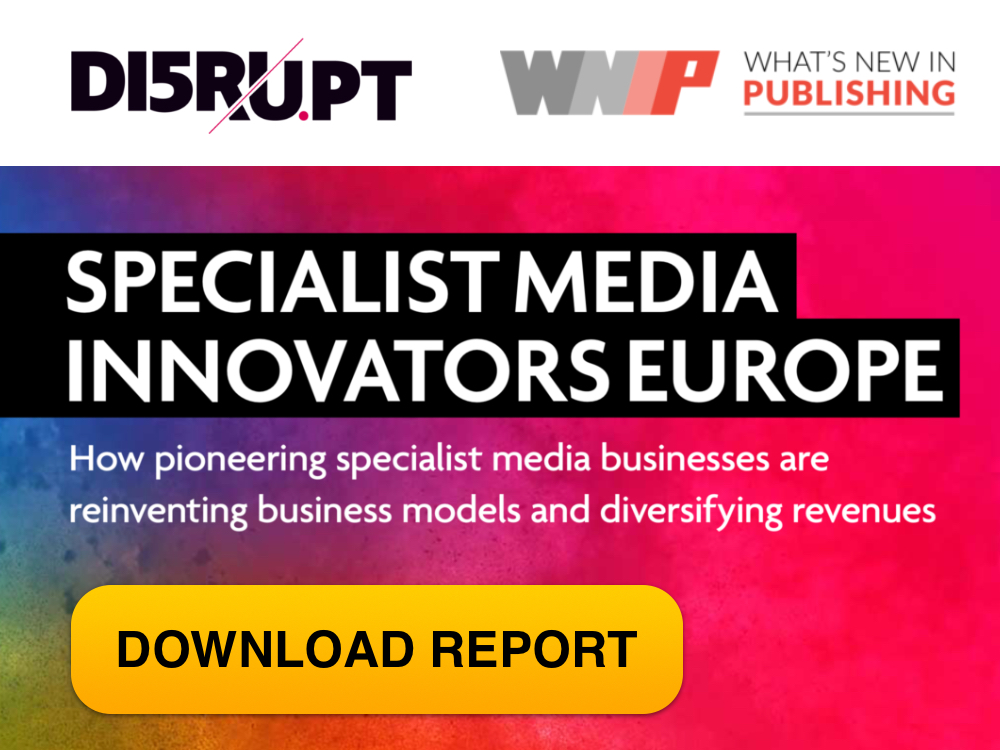|
Getting your Trinity Audio player ready...
|
Lucy Kueng, Senior Research Associate at Reuters and internationally renowned expert on digital disruption, has published a new book. It looks into how publishers can transform in the aftermath of the pandemic. The idea is to help them “seize the opportunities presented by the undeniable crisis we face, because those opportunities are truly huge,” Kueng writes in Transformation Manifesto: 9 Priorities for Now.
This is a reset moment. Organizations are unfrozen. People are expecting change. You have a cover. There will never be a better time to tackle deeper changes that need to happen.
Lucy Kueng, Transformation Manifesto
“We have the chance to reboot, to accelerate digital transformation and rethink organizations to fit a future that will now be with us much faster than we had expected,” she emphasizes. “This chance will not come again and the window is already starting to close. It is time to be bold.”
The book highlights nine priorities to get unstuck. They range from pruning projects and processes that are hangovers from previous eras and rebalancing cost structures, to developing a visceral sense of audiences, and re-sculpting culture to become truly customer-centric and inclusive of all talent.
“Triple down on data”
The pandemic has shown that audiences value high quality media. Many publishers have seen record growth in traffic and subscriptions. Readers have also embraced digital in a big way. “Even older demographic groups are now happy to consume content digitally, communicate virtually, and shop online,” writes Kueng.
However, overall revenues have contracted because of decline in advertising and cancellation of events. The growth in digital subscriptions is often not enough to compensate for the loss of other revenue streams. But many publishers have witnessed extraordinary growth during the coronavirus crisis and their success offers valuable insights for other publishers.
“The critical point here is that their success now is due to a complex and relentless change journey that they have been on for decades,” notes Kueng.
It is the fruit of sustained investment in going digital, in finding their digital voice, in understanding customers and building relationships with them, and in painstaking work to develop the right people, culture and leadership style.
Lucy Kueng, Transformation Manifesto
Publishers need to “triple down on data” in order to build a viable business for the future. They are increasingly relying on the subscriptions model and data will help them create products that offer the highest value to their readers.
It will help build trust and loyalty and cement relationships in the long run. It will also help in attracting advertising revenues as publishers who understand their audiences better can deliver more bang for the buck.
Triple down on data, not just on the volume flowing into the organization but on the calibre of discussions around that data, on the insights derived from it, the hypotheses you develop and test.
Lucy Kueng, Transformation Manifesto
“Time to clear the junk from the attic”
The next important step is to do away with products that are not working. These include:
- Legacy products that are hangovers from a previous era but still resourced at glory day levels.
- Innovation projects that are ‘a bit successful’, but not scaling.
- Meetings, reporting documents, processes – things that made sense when they were first created but make less sense now.
“This is the time to clear the junk from the attic,” says Kueng. “You won’t get this opportunity again and will kick yourself if you let it slip by. This may seem cynical but the goal here is to create an organization with a viable future.”
When making a cut, Kueng advises publishers to go deep enough so that they “don’t have to do subsequent rounds which destroy morale and increase stress.”
“Ring-fence the areas and competencies that are critical to the future and accelerate the rebalancing of resources from legacy to digital,” she adds.
She suggests publishers to address their operating costs to increase efficiency long-term. This includes reducing the cost of finding new business and finding ways to reduce spend on anything that has the potential for streamlining or automating.
The pandemic has unveiled new opportunities to reduce costs. For example, publishers were forced to shift into work-from-home mode and many of them do not want to go back to the way things were before the crisis hit. This means a drastic reduction in office space requirements. Many companies have already reduced office space, many more plan to do so.
“Impossible to over-stress how substantial and rare this opportunity is”
This is also the right time to set new habits/ ways of thinking into motion. “Culture is one of the biggest brakes on change and one of the biggest shared concerns for leaders,” explains Kueng. “Rightly so, because culture is notoriously difficult to change – strategy can change, business models and processes can change but culture is stubbornly resistant.”
But the pandemic has altered that as well. “The biggest opportunity offered by the Covid-19 crisis is the chance to resculpt corporate culture,” she writes.
Cultures are unfrozen, people are expecting change. It is impossible to over-stress how substantial and rare this opportunity is. We have a pivot moment but the window will not be open forever.
Lucy Kueng, Transformation Manifesto
Kueng recommends making cultural changes indirectly. Organizations are witnessing a variety of changes, they can be used to shift culture in the desired direction. “The trick is to layer culture change objectives into everything else you are doing,” she explains.
For example, publishers who want to focus on efficiency can symbolically close at least one product, process etc. that has passed its time. This will help set a cultural precedent in the organization that projects can be stopped as well as started as part of growth strategies.
“Covid-19 has been a crisis on so many levels but it is also a huge opportunity: to rethink, to innovate, to shed things that need to be let go of, and to build for the future,” suggests Kueng.
“Seizing the moment – getting the timing right – is a non-replicable strategic advantage. Other elements of success formulas can be copied, this cannot. Now is the time – seize the opportunity in this crisis to renew and find growth,” she concludes.
The book is available for purchase on Amazon (physical and digital versions). Right now it can also be downloaded for free here.



